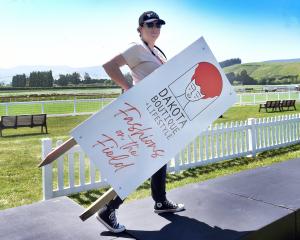Dunedin Mayor Dave Cull has slammed the Government's decision to waive notification of exploratory deep-sea drilling.
Environment Minister Amy Adams yesterday announced activities involved in exploratory drilling for oil and gas will be classified as non-notified discretionary, under new regulations which come into effect today.
Mr Cull said the move was inconsistent with the Resource Management Act (RMA), which dealt with land-based activities.
''This [Economic Exclusion Zone Act regulation] is saying we don't care who might be affected. We'll set up a body to decide if an activity has effects, and that's taking it away from the public.''
Mr Cull said he was not taking sides over exploratory drilling, but he felt the new regulations were preemptive.
''I find it hard to believe you can carte blanche say it doesn't matter where or how you drill, activities will be non-notified. I think it's unfortunate to prejudge whether activities might have effects,'' he said.
Greenpeace energy campaigner Steve Abel said the exploratory phase of drilling was the most dangerous, and the Government had stripped away New Zealanders' chance to formally oppose it.
''This is a cowardly move from a Government doing the bidding of foreign oil companies,'' he said.
Oil Free Otago spokeswoman Niamh O'Flynn, of Dunedin, said the classification ruling was in line with the Government's ''shutting people out of the process more and more''.
If people were unable to make submissions on proposed activities, they
were more likely to be involved in public protest to get their view across.
''It does mean we need to be more creative in the way we choose to oppose it [exploratory drilling]. Protesting becomes a more important way of dealing with this issue because formal channels are being shut down.''
Public protest against exploratory drilling off Otago's coast would continue, she said.
Ms Adams said the non-notified discretionary classification was a ''pragmatic'' option for exploratory drilling, and would ''provide a level of regulation proportionate to its effects''.
''The classification will provide effective oversight and environmental safeguards without burdening industry with excessive costs and timeframes,'' she said.
Ms Adams said an operator would have to apply for a separate consent to produce oil or gas, and that consent would be subject to public consultation.











